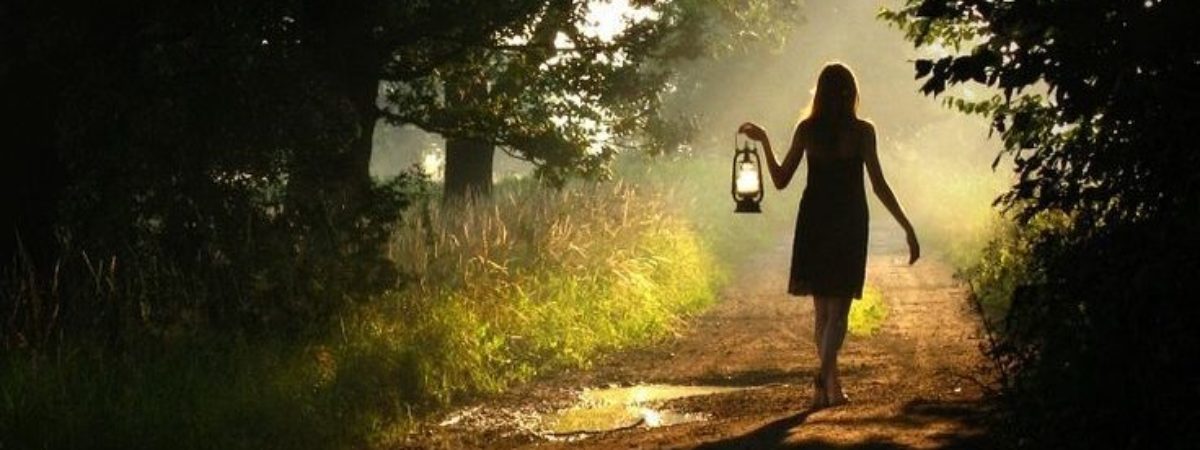I met a neighbor walking her dog the other evening. I asked if she minded company and we began chatting about life. She’ll be 70 soon — I can’t believe in two years I’ll be there — and she seemed a bit down.
“I didn’t do a lot of things I could have when I was younger,” she said, the dog tugging at her leash for us to move faster.
“I studied art, you know, pen and pencil, pastels and I loved it. Even got my degree in fine arts. Then I married, had children, divorced and put the art away. And now …”
“And now?” I prompted her.
 “It’s just too late to do anything with it. So in the mornings I do my crossword puzzles, read my books. I won’t ever go back to art and I’m fine with that.”
“It’s just too late to do anything with it. So in the mornings I do my crossword puzzles, read my books. I won’t ever go back to art and I’m fine with that.”
When we parted ways I felt sad about her words. She may be content with what she’s doing with her life — and if so, that’s fine — but my motto has always been: It’s never too late.
If art is an activity she enjoyed, why not do it again, for the sheer, delicious pleasure of it? She may never have a show in a gallery or sell her work, but so what? If art nurtures and feeds her soul, what more wonderful gift could she give herself at this stage in life?
The week before I happened upon another neighbor, this time in the hospital lobby. I spend much of my time it seems in hospitals as I care for aging parents.
I was rushing to get dad in his wheelchair and into the elevator to his doctor’s appointment when she snagged my attention from the periphery of my vision, a frail, almost elfin-like woman, lost in an enormous wheelchair. A ding of recognition — do I know this woman — hit me, but I let it pass as I had to get dad upstairs and settled.
After I spent the afternoon caring for dad at home, I had to return to the same doctor’s office at the hospital to pick up some paperwork and I saw her, still there. I was almost sure I knew her and walked over to her and asked, “Aren’t we neighbors? And have you been here alone, all day?”
We were neighbors and yes, she had been sitting at this hospital alone. All day. She was waiting for a medical transport, but she had missed the last van. I volunteered to drive her home, but she told me she had already paid for the service and she was OK, even though she had another hour to wait. I asked her if I could get her coffee. Wheel her to the bathroom? She assured me she was fine.
I sat down next to her and we began to talk. Within a few minutes I realized I was in the presence of a special soul, someone who talked of God always being with her, a God who never failed her.
 Someone who had been through great pain but physically felt herself being cradled in God’s love. Who had sensed God’s presence deeply with her throughout her life. Someone who told me that most us in the world are walking around asleep and need to wake up to the miracles around us.
Someone who had been through great pain but physically felt herself being cradled in God’s love. Who had sensed God’s presence deeply with her throughout her life. Someone who told me that most us in the world are walking around asleep and need to wake up to the miracles around us.
I listened in awe and wonder to this avatar in a wheelchair. When her transport arrived, I leaned over and hugged her. She had shifted my heavy, sad energy of caregiving in that one hour to light and hope. I didn’t want our conversation to end. We promised to pray for each other.
Life always brings challenges. And choices. Some of us are bound by our limitations in thought — what we think we can or can’t do — and some, although bound by wheelchairs, are free and unlimited.
When I was in my 20s, my first love introduced me to Viktor Frankl’s book Man’s Search for Meaning. I never forgot Frankl’s famous quote:
“Everything can be taken from a man but one thing: the last of the human freedoms—to choose one’s attitude in any given set of circumstances, to choose one’s own way.”
I’m always humbled by the people God puts in my path, teachers who come in the most interesting guises. Both these women continue to inspire me in different ways. They leave me questioning: What am I choosing? As a people what are WE choosing? And are we awake or asleep?
Reflections on Life and the Spirit by Marielena Zuniga
